Animals
-
 Animals
AnimalsAlpine swifts fly nonstop for more than six months
During a journey of 200 days, the birds eat, rest and migrate without touching the ground.
-
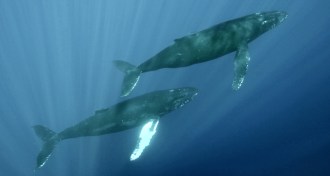
-
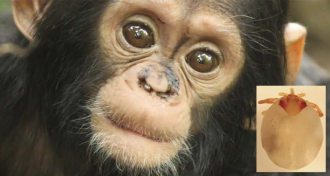 Animals
AnimalsHiding up your nose is a clever strategy for ticks
Found hiding in the noses of Ugandan chimps, a new tick species hitchhiked its way to America in a researcher's nose.
-

-
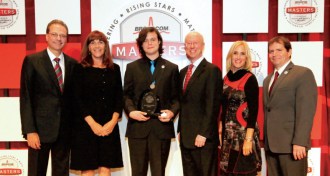 Animals
AnimalsTortoise-studying teen takes top Broadcom prize
Even a tortoise enthusiast can speed through a three-day gauntlet of science, engineering and math challenges to claim victory. River Grace, 14, of West Melbourne, Fla., did just that. At an awards ceremony October 1, he picked up the top award of $25,000. The teen was one of 30 finalists from 17 states who attended the third annual Broadcom Math, Applied Science, Technology and Engineering for Rising Stars, or MASTERS, competition.
By Science News -
 Animals
AnimalsThe giraffes that sailed to medieval China
Chinese exploration of the world is often left out of Western textbooks (at least it was left out of mine), but for a brief period, from 1405 to 1433, the Chinese under Ming emperor Yongle sent out numerous trade missions that reached as far as present-day Kenya. During the fourth expedition, which left China in 1413, part of the fleet led by commander Zheng He sailed to Bengal in India, where in 1414 they met envoys from the African coastal state of Malindi (now part of Kenya). The men from Malindi had brought with them as tribute giraffes, and they gave one of those giraffes to the Chinese, who took it home.
-
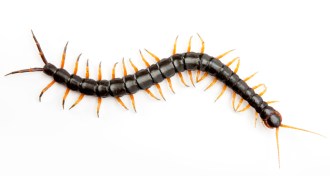 Animals
AnimalsCentipede venom fights pain
Molecule from toxin makes mice less sensitive to pain, may work as well as morphine.
-
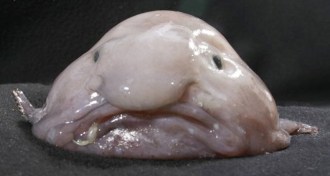
-
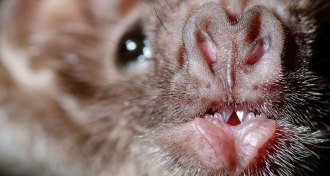 Animals
AnimalsVampire reality check
A vampire bat drinks one meal a night, and missing just three nights in a row would probably kill the animal.
By Susan Milius -
 Animals
AnimalsFeedback
Readers respond to "Collision course" and "The tune wreckers" from our September 21 issue, plus some feedback on the new website.
By Science News -
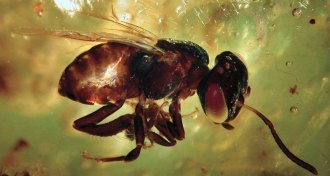 Paleontology
PaleontologyDinosaur dreams dashed
Fans of 'Jurassic Park' may be disappointed (or possibly relieved) to learn that you can’t get ancient DNA from amber.
-
